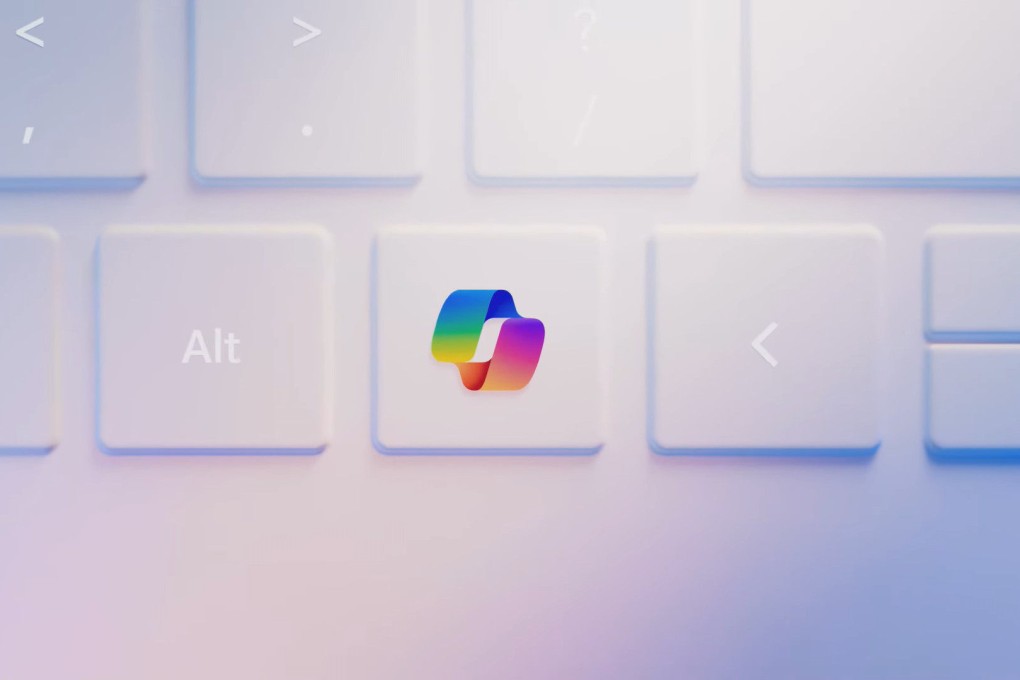Advertisement
Microsoft to show off Copilot AI key for Windows keyboards at CES, in first change to layout since 1994
- The Copilot key, which will sit to the right of the space bar, is the first change to the Windows keyboard layout since Microsoft added the Start key
- The tech giant sees 2024 as ‘the year of the AI PC’ and has spent the past year retooling its biggest products around AI tech that can generate new content
Reading Time:1 minute
Why you can trust SCMP

Microsoft is adding a button to the Windows keyboard to activate its AI Copilot service, with the first devices to sport the new key available this month.
The Copilot key, which will sit to the right of the space bar, is the first change to the Windows keyboard layout since Microsoft added the Windows/Start key in 1994, underscoring the company’s commitment to artificial intelligence. Microsoft’s hardware partners will show off Windows 11 computers with the Copilot button over the coming days at the CES technology conference and, over time, it will become a required feature.
The short cut will help users create images, write emails and summarise text with the help of AI.
Advertisement
“AI will be seamlessly woven into Windows from the system, to the silicon, to the hardware,” Microsoft’s consumer chief marketing officer, Yusuf Mehdi, said in a blog announcing the change.
The Redmond, Washington-based company sees 2024 as “the year of the AI PC”, according to Mehdi, mirroring the budding trend among smartphone makers to tout their latest models as “AI phones”. Those labels don’t carry much weight by themselves, but Microsoft has spent the past year retooling its biggest products around AI tech that can generate new content from massive data sets. That list now includes Windows, Office, Bing search, security software and customer and finance products. The work heavily leverages the GPT-4 technology from OpenAI, in which Microsoft has invested US$13 billion.
Advertisement
Advertisement
Select Voice
Select Speed
1.00x